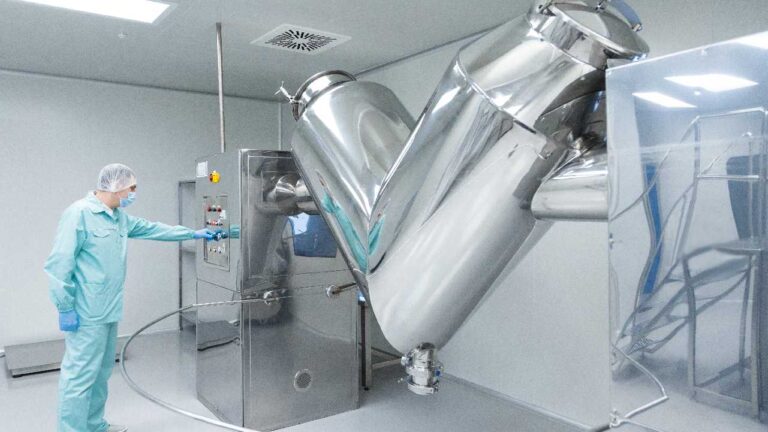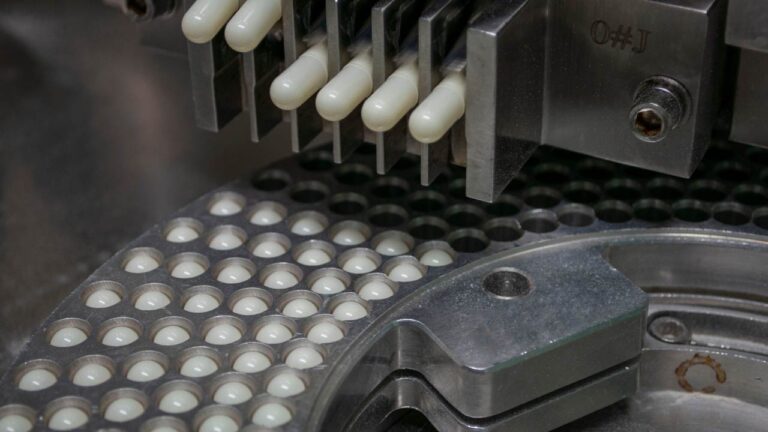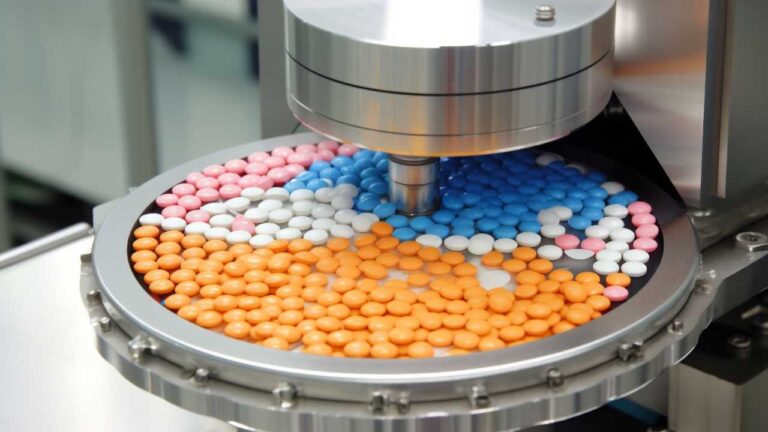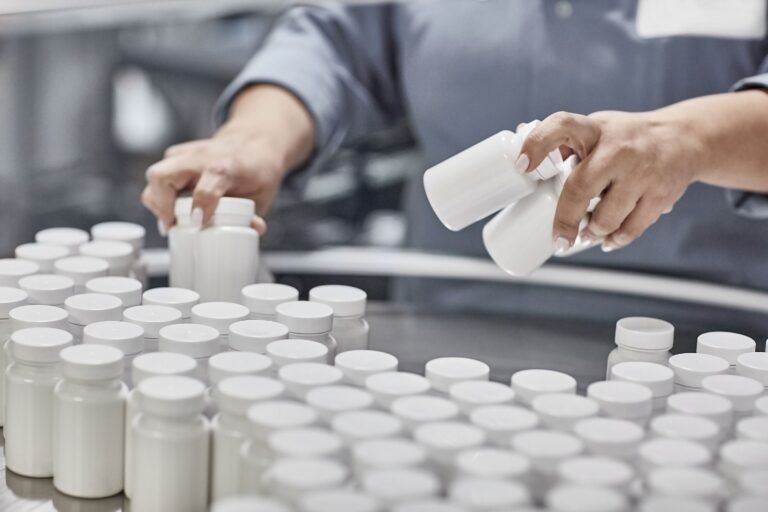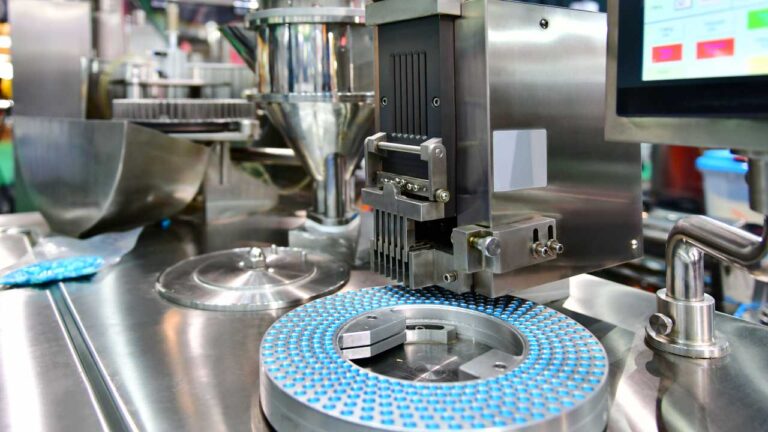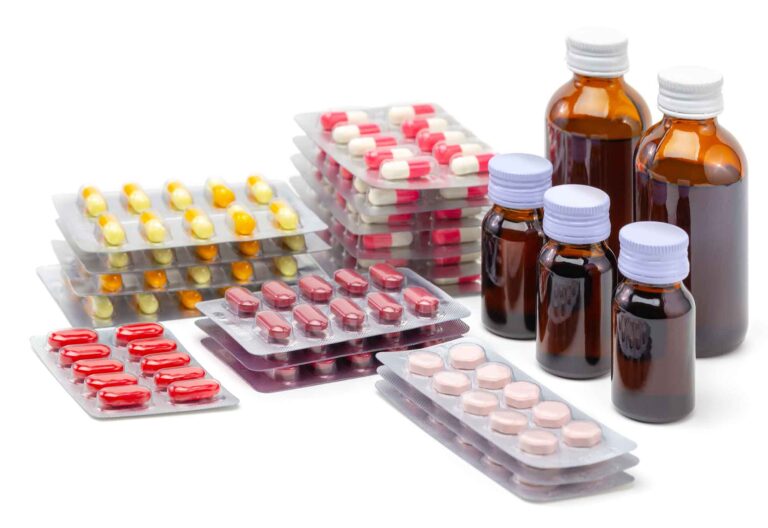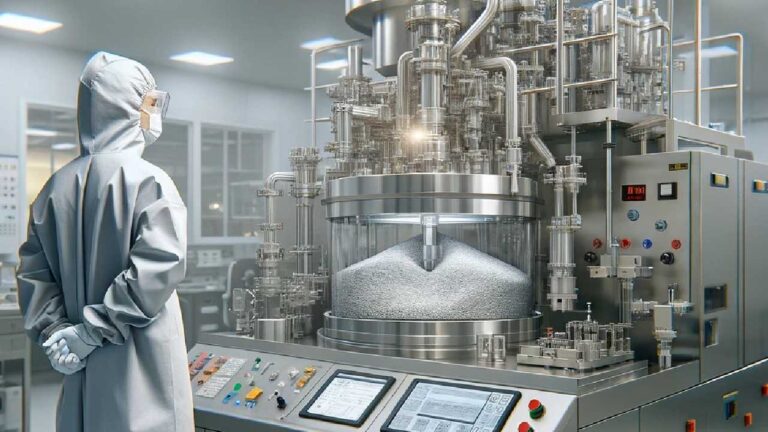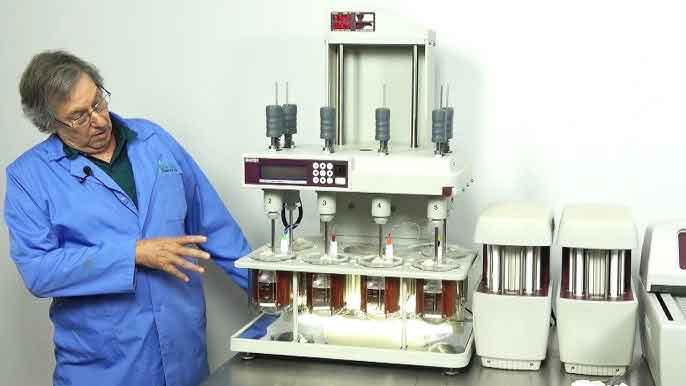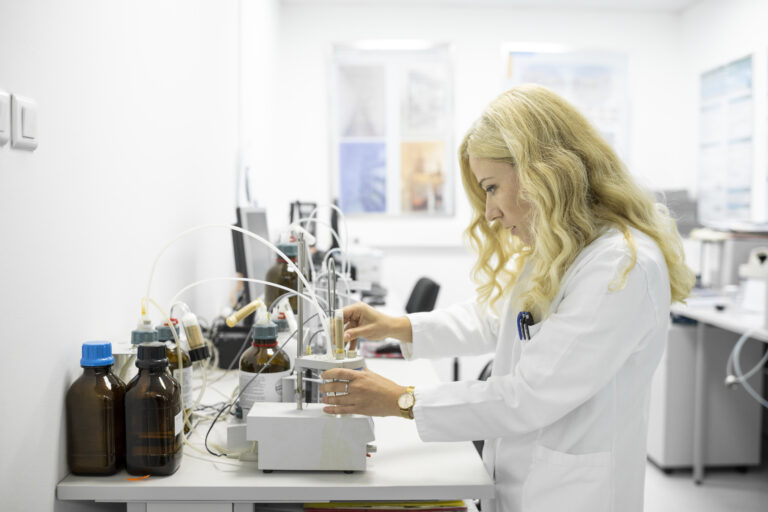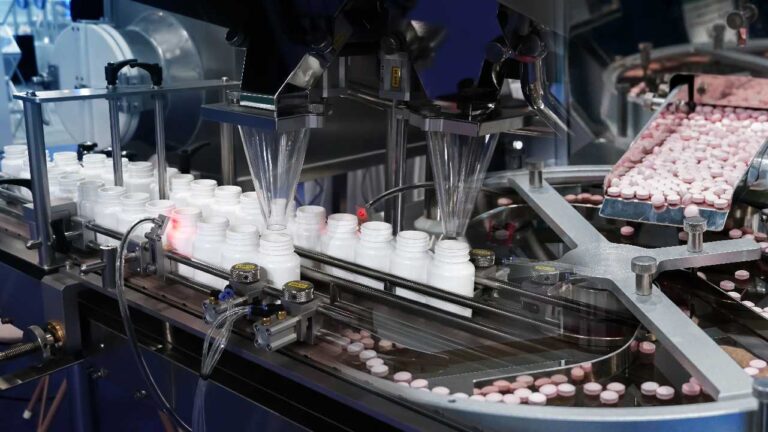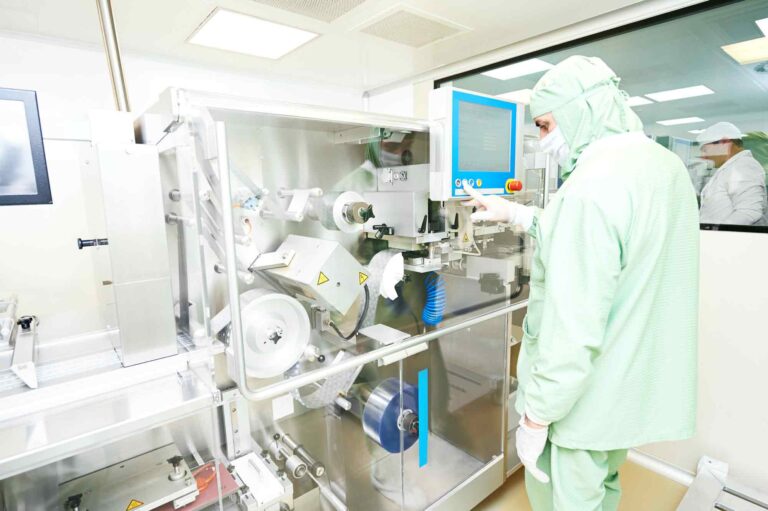Bridging the Gap from Laboratory to Commercial Production
Scaling up pharmaceutical manufacturing is a critical phase in the drug development process, where production is transitioned from laboratory-scale to commercial-scale. This stage is essential for ensuring that the drug can be produced in sufficient quantities to meet clinical trial and market demands while maintaining quality and compliance. At Hycon, we specialize in the seamless scale-up of pharmaceutical manufacturing processes, leveraging our expertise and advanced technologies to ensure success.
The Importance of Scale-Up
The scale-up process is pivotal in the pharmaceutical industry as it directly impacts the feasibility, cost, and timeline of bringing a new drug to market. Successful scale-up ensures that the drug can be produced consistently and efficiently, meeting regulatory standards and patient needs. It involves significant changes to the manufacturing process, including adjustments to equipment, batch sizes, and quality control measures.
Key Considerations in Scale-Up
1. Process Understanding and Optimization
A thorough understanding of the manufacturing process is essential for successful scale-up. This includes knowledge of the critical process parameters (CPPs) and critical quality attributes (CQAs) that influence the final product’s quality. At Hycon, we employ advanced process analytical technology (PAT) to monitor and control these parameters in real-time, ensuring optimal process performance.
2. Equipment and Facility Design
Scaling up requires the use of larger equipment and facilities that can handle increased production volumes. The design and selection of equipment must ensure that the process remains consistent and reproducible at a larger scale. This includes considerations for mixing, heat transfer, and mass transfer, which can differ significantly from laboratory-scale operations.
3. Quality Control and Regulatory Compliance
Maintaining product quality and compliance with regulatory standards is paramount during scale-up. This involves implementing robust quality control measures and adhering to current Good Manufacturing Practices (cGMP). At Hycon, we ensure that our scale-up processes meet all regulatory requirements, including those outlined by the FDA and EMA.
4. Risk Management
Scaling up introduces various risks, including potential changes in product quality, process variability, and equipment failures. A comprehensive risk management strategy is essential to identify, assess, and mitigate these risks. At Hycon, we utilize risk-based approaches, such as Failure Mode and Effects Analysis (FMEA), to ensure a smooth and successful scale-up.
Advanced Topics in Scale-Up
1. Predictive Modeling and Simulation
Predictive modeling and simulation tools, such as Computational Fluid Dynamics (CFD) and process simulation software (e.g., Dynochem, gPROMS), play a crucial role in understanding the kinetics and thermodynamics of the scale-up process. These tools help in predicting the behavior of the process at different scales, allowing for the identification and mitigation of potential issues before they arise.
2. Scale-Down Studies
Scale-down studies are essential for replicating the commercial-scale environment at a smaller scale. These studies help in understanding the impact of scale-up on process performance and product quality. By conducting scale-down experiments, we can identify and address potential challenges, such as out-of-specification investigations, new impurity formation, and homogeneity issues.
3. Continuous Manufacturing
Continuous manufacturing is an emerging trend in pharmaceutical scale-up, offering several advantages over traditional batch processes. Continuous processes provide better control over process parameters, leading to improved product quality and consistency. Additionally, continuous manufacturing can reduce production costs and increase efficiency. At Hycon, we are at the forefront of implementing continuous manufacturing technologies to enhance our scale-up capabilities.
Scale-Up Process at Hycon
At Hycon, we follow a systematic approach to scale-up, encompassing the following key steps:
1. Laboratory-Scale Development
The scale-up process begins with the development and optimization of the manufacturing process at the laboratory scale. This involves identifying the CPPs and CQAs, conducting small-scale experiments, and developing a robust process that can be scaled up.
2. Pilot-Scale Studies
Pilot-scale studies are conducted to validate the laboratory-scale process and identify any potential issues that may arise during scale-up. These studies provide valuable data on process performance, equipment suitability, and product quality, which are essential for successful scale-up.
3. Scale-Up and Technology Transfer
The scale-up process involves transferring the optimized process from the laboratory to the production facility. This includes scaling up the equipment, adjusting process parameters, and implementing quality control measures to ensure consistent product quality. At Hycon, we work closely with our clients to ensure a seamless technology transfer and scale-up.
4. Commercial Production
Once the scale-up process is complete, the drug is produced at a commercial scale to meet market demands. This involves continuous monitoring and optimization of the manufacturing process to ensure consistent product quality and compliance with regulatory standards.
Applications and Benefits
Scaling up pharmaceutical manufacturing offers several benefits, including:
- Increased Production Capacity: Scaling up allows for the production of larger quantities of the drug to meet clinical trial and market demands.
- Cost Efficiency: Optimized scale-up processes reduce production costs and improve overall efficiency.
- Regulatory Compliance: Robust scale-up processes ensure compliance with regulatory standards, minimizing the risk of product recalls and regulatory issues.
- Consistent Product Quality: Advanced quality control measures ensure that the final product meets the desired quality attributes.
Why Scaling Up Is Important
Scaling up business is so important and there are three big reasons for this:
- Patient Safety: Before a new drug can be sold, it goes through extensive testing in clinical trials involving many participants. Scaling up ensures the manufacturing process produces consistent, high-quality batches of the drug, keeping patients safe.
- Regulatory Approval: To sell a new drug, it must meet strict quality standards set by agencies like the FDA. These standards apply not just to the final product but also to how it’s made. Scaling up while following guidelines ensures regulatory approval.
- Commercial Success: Imagine you made the best cookies in town, but you could only bake a few at a time. Scaling up allows pharmaceutical companies to produce more efficiently and at lower costs, making the difference between profit and loss.
Tips For Successful Scale-Up
Scaling up isn’t a one-size-fits-all process; each drug is unique. However, here are some simple tips that apply to most cases:
- Work with Experienced Partners: It’s like having a seasoned chef help you with your big cooking project. Experienced partners in Contract Development and Manufacturing Organizations (CDMOs) can assist in planning and executing the scale-up.
- Plan for Regulatory Compliance: Think of this as making sure your cooking follows health and safety regulations. Plan for regulatory compliance early to avoid delays or issues later.
- Establish Quality Control Measures: Just as you taste your food to check quality, establish robust quality control measures early on. This ensures the final product meets all regulatory requirements.
- Pay Attention to Process Development: Consider this as fine-tuning your recipe. Developing and validating the manufacturing process is key. It includes defining process parameters, testing for efficacy, and following guidelines.
- Understand Raw Material Impact: Different ingredients can affect your cookies. Similarly, raw materials can impact the manufacturing process. Understand how various raw materials affect production.
- Be Prepared for Changes: Scaling up may require changes in your process. Plan for these changes to be quick and efficient. It’s like having a backup recipe if your first one doesn’t quite work.
- Facility Design for Scalability: Ensure your cooking space is designed for growth. Partnering with a CDMO eliminates concerns about facility design, as they already have what’s needed for both small and large-scale manufacturing.
Challenges In Scaling Up Pharmaceutical Manufacturing
Scaling up pharmaceutical manufacturing presents significant challenges that require careful consideration and proactive measures. These challenges can impact various aspects of the production process and necessitate strategic planning for successful outcomes.
Ensuring Regulatory Compliance
One of the primary hurdles in scaling up is ensuring regulatory compliance. Navigating through the stringent requirements set by regulatory authorities, such as the FDA, demands early planning and collaboration with experienced partners. This involves adhering to guidelines to secure regulatory approval, an important step in the pharmaceutical manufacturing journey.
Minimizing Costs
One of the primary hurdles in scaling up is ensuring regulatory compliance. Navigating through the stringent requirements set by regulatory authorities, such as the FDA, demands early planning and collaboration with experienced partners. This involves adhering to guidelines to secure regulatory approval, an important step in the pharmaceutical manufacturing journey.
Maintaining Quality
As production scales up to larger batches, maintaining product quality becomes a complex challenge. Stringent quality control measures must be established and adhered to at every stage of the manufacturing process. Attention to detail is paramount to ensure that each batch meets the required quality standards. This focus on quality is vital to guarantee the safety and efficacy of the pharmaceutical product.
Remaining Flexible
Flexibility is key when scaling up pharmaceutical manufacturing, as unexpected challenges are bound to arise. Issues such as supply chain disruptions or equipment glitches can impact the production process. Being prepared with a contingency plan is essential to handle these unforeseen circumstances effectively. The ability to adapt to changes swiftly and efficiently is important for maintaining a smooth and uninterrupted manufacturing process.
Process Of Scaling Up Pharmaceutical Manufacturing
The process of scaling up pharmaceutical manufacturing involves the following steps:
Batch Size Consideration:
In the initial phase of scaling up pharmaceutical manufacturing, careful consideration of batch size is paramount. This involves a careful approach to determining the batch size based on annual forecasts and projected launch quantities. Furthermore, it is important to align the batch size for the final product, Active Pharmaceutical Ingredient (API), and raw materials to ensure a cohesive and streamlined production process.
Raw Material Consistency:
Ensuring the consistency of raw materials adds a layer of complexity to the scaling-up process. This step involves not only obtaining materials from the same supplier but also minimizing variations in raw material grades. This meticulous approach aims to establish correlations and eliminate potential material interactions that could impact the quality and integrity of the pharmaceutical product.
Documentation And Data Analysis:
A comprehensive approach to documentation and data analysis is essential for successful scale-up. This involves charting the development progress and small-scale batches meticulously. Variables derived from product documentation are identified and analyzed. Additionally, a parallel chart is created for the proposed manufacturing process, ensuring a thorough understanding and alignment of every aspect.
Process Changes And Critical Steps:
As the scale increases, critical steps identified during small-scale manufacturing are rigorously challenged. This step involves a detailed reevaluation of other process steps that may be impacted at a larger scale. Addressing these critical steps ensures the scalability and integrity of the manufacturing process.
Data Comparisons And Insights:
A critical aspect of scaling up involves conducting rigorous data comparisons. This includes determining the comparability and scalability of each step in the process. The insights gained from this analysis are then utilized to make informed decisions, ensuring that the scaled-up process aligns seamlessly with the small-scale model.
Scale-Up Plan And Documentation:
Documenting the scale-up plan through a carefully crafted and approved protocol is a foundational step. This documentation outlines the intricate details of the scale-up process, providing a roadmap for implementation. Initially planning to manufacture 3-5 batches allows for a systematic and measured approach to scale-up.
Confirmation Batches:
The confirmation phase involves conducting batches using predefined target parameters. The evaluation of batch data at this stage is important for assessing comparability to small-scale lots. This thorough examination ensures that the scaled-up batches meet the established standards before progressing further.
Validation And Regulatory Approval:
Validation, a pivotal step in the scaling-up process, follows confirmation of batch comparability. This involves proceeding with a systematic validation process and seeking regulatory approval for the saleability of the batches. Regulatory compliance is of utmost importance to ensure adherence to industry standards and regulations.
Consideration For Manufacturing Loads:
For processes involving multiple manufacturing loads, each sublot is treated as an experiment. This involves meticulous data collection to ensure a comprehensive analysis of the impact of different manufacturing loads on the final product. This step adds an additional layer of assurance to the scalability and consistency of the manufacturing process.
Continued Monitoring And Adaptation:
The journey of scaling up pharmaceutical manufacturing doesn’t conclude with successful validation. Continuous monitoring of the manufacturing process is imperative. Being prepared to adapt swiftly and efficiently to unforeseen challenges during large-scale production ensures the ongoing success and sustainability of the scaled-up operation.
Related Services










